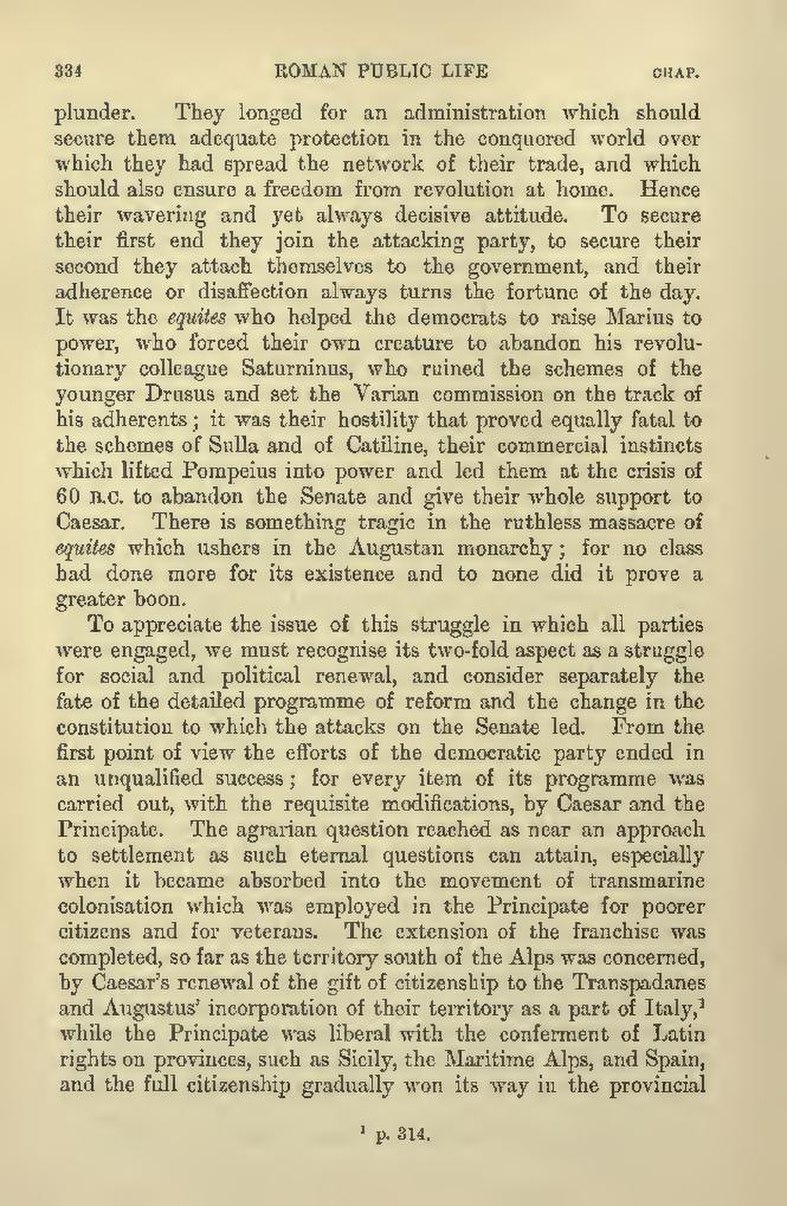plunder. They longed for an administration which should secure them adequate protection in the conquered world over which they had spread the network of their trade, and which should also ensure a freedom from revolution at home. Hence their wavering and yet always decisive attitude. To secure their first end they join the attacking party, to secure their second they attach themselves to the government, and their adherence or disaffection always turns the fortune of the day. It was the equites who helped the democrats to raise Marius to power, who forced their own creature to abandon his revolutionary colleague Saturninus, who ruined the schemes of the younger Drusus and set the Varian commission on the track of his adherents; it was their hostility that proved equally fatal to the schemes of Sulla and of Catiline, their commercial instincts which lifted Pompeius into power and led them at the crisis of 60 B.C. to abandon the Senate and give their whole support to Caesar. There is something tragic in the ruthless massacre of equites which ushers in the Augustan monarchy; for no class had done more for its existence and to none did it prove a greater boon.
To appreciate the issue of this struggle in which all parties were engaged, we must recognise its two-fold aspect as a struggle for social and political renewal, and consider separately the fate of the detailed programme of reform and the change in the constitution to which the attacks on the Senate led. From the first point of view the efforts of the democratic party ended in an unqualified success; for every item of its programme was carried out, with the requisite modifications, by Caesar and the Principate. The agrarian question reached as near an approach to settlement as such eternal questions can attain, especially when it became absorbed into the movement of transmarine colonisation which was employed in the Principate for poorer citizens and for veterans. The extension of the franchise was completed, so far as the territory south of the Alps was concerned, by Caesar's renewal of the gift of citizenship to the Transpadanes and Augustus' incorporation of their territory as a part of Italy,[1] while the Principate was liberal with the conferment of Latin rights on provinces, such as Sicily, the Maritime Alps, and Spain, and the full citizenship gradually won its way in the provincial
- ↑ p. 314.
